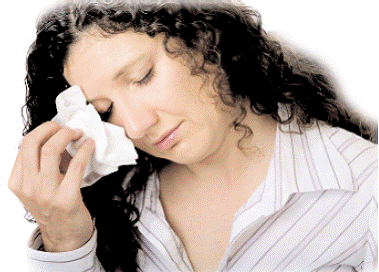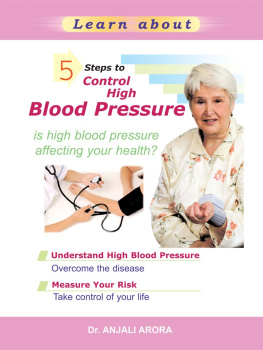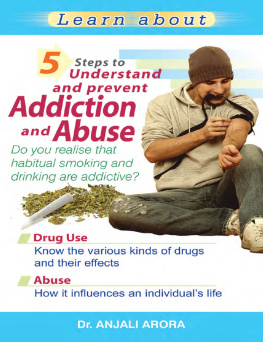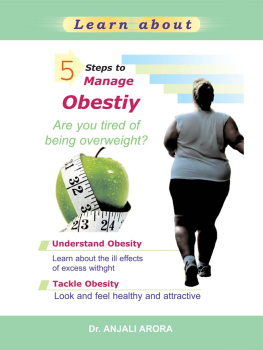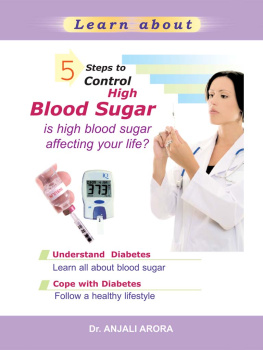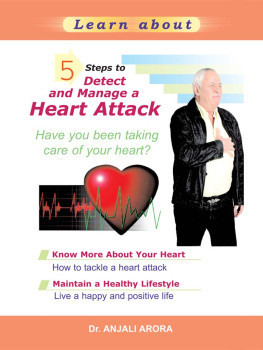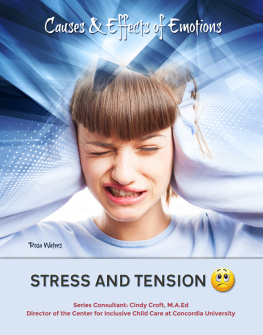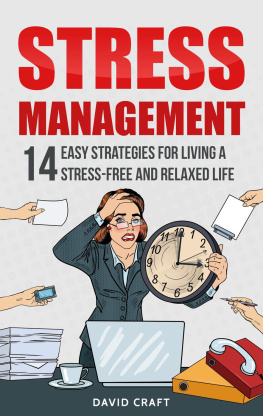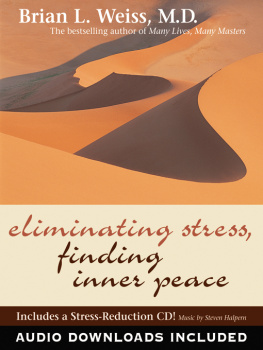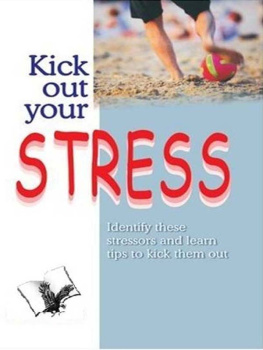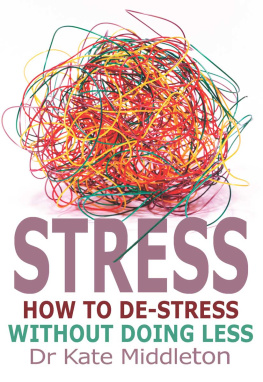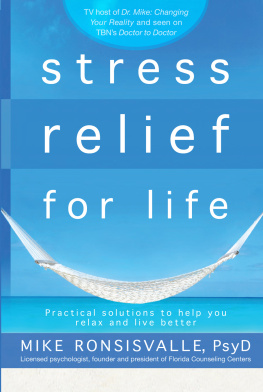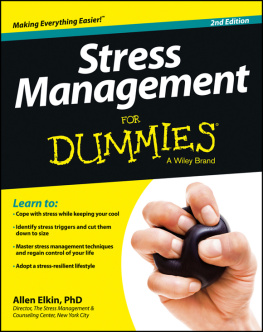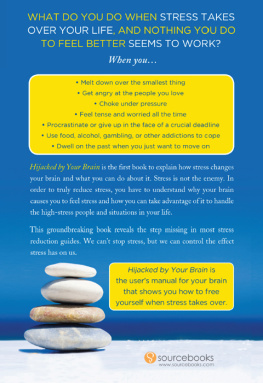About The Book
Overwhelmed by the stressful situations in life, most of us get upset or flustered. This affects our lifestyle and personality.
Take stock of your life now. Learn how to analyse your stress levels and how to cope with it. This book discusses all the aspects of counteracting stress and gives a plethora of techniques for you to destress.
About The Author

Dr. Anjali Arora did her M.D. from Lady Hardinge Medical College & S.K. Hospital, New Delhi. Interested in lipids and preventive cardiology, she joined the Escorts Heart Institute and Research Centre, New Delhi, in 1993 as a consultant. She started and then managed the Hyperlipidaemia Prevention Clinic there for nearly 7 years. Currently she is working at Sir Ganga Ram Hospital as a consultant in the Department of Cardiology. Interested in preventive medicine, with a special focus on lifestyle diseases, she continues to manage the Hyperlipidaemia and Atherosclerosis Prevention Clinic in the hospital. Member of a number of associations, she is also an active faculty member of the South Asian Society on Atherosclerosis and Thrombosis (established in Minnesota, U.S.A.).
Life And Stress...
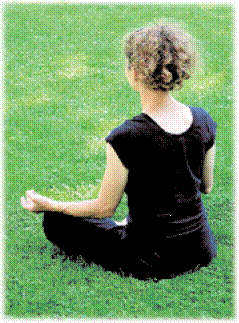

L ife and stress are interwoven with each other. It depends on how you view life and how stress affects you. Stress has been defined as a non-specific response by the body to readjust. Some people readjust well physically and mentally with circumstances. Many of us, get upset or flustered over things. This affects your system, your day and your lifestyle.
It has been seen that those working in night shifts over a period of time are more prone to ulcers, high blood pressure and other diseases. Certain amount of stress is important to achieve targets but chronic stress often takes a heavy toll on a person. Chronic type of stress constantly keeps you under tension and makes you tired and ill. Take a stock of your life and its activities, now!

01. Analyse Your Stress
Are you under stress? Answer this questionnaire to find out.
Are you comfortable with your living surroundings ?
- You are content with your home and its surroundings.
- You feel stressed out with the city pollution and its pace of life.
- You can manage with your pace of life and find home comfortable.
When it comes to your job, how would you place yourself?
- You are ambitious and motivated.
- You find work unsatisfactory and boring.
- You are satisfied with the job.
If you had a problem with a personal relationship
- You would pretend that there is no problem.
- You would get depressed.
- You would like to talk about it and get over with it.
How do you find life?
- You are in control of it.
- You are always looking for something you dont have.
- You are pleased by the way things are going.
While preparing to give a presentation or a lecture or speech in front of people
- You are stimulated and thrilled.
- You panic.
- You are a little nervous but full of energy.


Stress is a highly individual phenomenon. It is strange in its own way because when it occurs it becomes difficult for the body and mind to adjust to the pattern of life!
The more you answer (b) the more stressed out you are. Control your emotions during various situations; otherwise you can get into a sense of hopelessness or depression!
02. The Stress Trigger
Where does the stress arise from?
- It can arise from your innerself.
- It can be imbedded in you.
- It can also be hidden and cause a communication problem.
- It depends on how you function mentally and what you think, i.e., your attitude. E.g. a job transfer may be stressful for one person, but a great opportunity for the other !!
How does stress relate with you? Worry? Pain? Discomfort? Excitement? Anxiety? Fear? Uncertainty? |






Some Symptoms of Stress
| Anxiety | Anger |
| Depression | Tension |
| Overeating | Irritability |
| Negative thinking | Itchy skin |
| Excessive sleeping | Allergies |
| Diarrhoea | Smoking |
| Constipation | Aching joints |
| Constant tiredness | Palpitations |
| Headache | Breathlessness |
| Loss of appetite |


Women and Stress
The fluctuating estrogens in a womans body can make her moody. During stress periods, estrogen levels drop in a woman. The adrenal glands produce more of stress hormones than estrogen. During this phase when estrogen drops, there can be a build up of arterial plaque increasing the risk of cardiac disease. By menopause the levels of estrogen in a woman drop by nearly 80%. This is an important turning point in a womans life. Major changes from hot flushes to bone mass loss to osteoporosis can occur. Also, estrogen has a protective effect on the cardiovascular system till menopause. After menopause, women become susceptible to heart problems equivalent to that in men.
